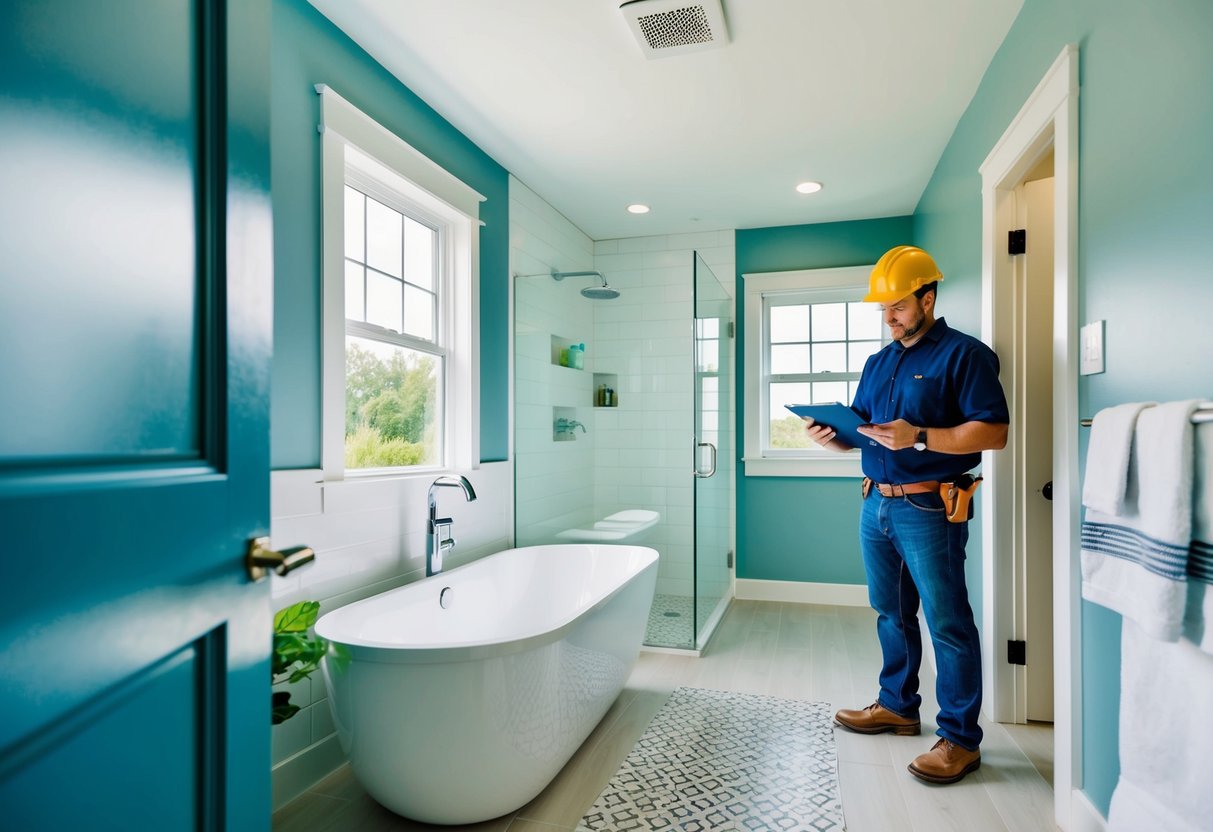Making the shift from investor to resident in your own investment property is possible and sometimes a practical choice, depending on your personal circumstances. For those living in Australia considering this move, the path to transforming an investment property into a primary residence requires compliance with certain tax and legal regulations. It’s a common scenario where you may acquire an investment property with the intention to rent it out, but later, either by choice or necessity, decide to make it your home.

It’s essential to understand that while living in your investment property is permissible, the transition entails notifying the Australian Taxation Office (ATO) of your change in residence status, as this affects your tax treatment. Features that once may have been claimed as deductions—such as depreciation on the property while it was being rented out—might no longer be applicable when the property becomes your primary place of residence. Additionally, implications for capital gains tax need to be considered if you sell the property after residing in it, as the sale of one’s primary residence is typically subject to different tax considerations than that of an investment property.
Key Takeaways
- You can convert your investment property into your primary residence in Australia.
- Notifying the ATO of changes in the property’s status is imperative to stay compliant with tax laws.
- Understanding the shift in tax implications is crucial when opting to live in your investment property.
Understanding Investment Properties
Before delving into whether you can live in your investment property, it’s crucial to define what an investment property is and understand how it differs from your primary residence.
Defining Investment Property
An investment property is a real estate property purchased with the intention of earning a return on the investment. This return can come through rental income, the future resale of the property, or both. As an investor, you acquire such properties to generate passive income or capital gains rather than to serve as your primary place of residence (PPOR).
The Australian Taxation Office (ATO) has specific rules regarding investment properties. For instance, if you sell an investment property, you might be subject to capital gains tax (CGT) unless specific exemptions apply.
Investment Property Vs Primary Residence
Your primary place of residence (also known as your principal place of residence or PPOR) is the home where you live permanently. It’s the dwelling that you personally occupy and does not generate income. Under Australian tax law, your PPOR typically receives a CGT exemption, meaning you won’t pay tax on the capital gains when you sell this home.
Table comparing key points:
| Aspect | Investment Property | Primary Residence |
|---|---|---|
| Taxation | Subject to capital gains tax (CGT) | CGT exemption applies |
| Purpose | Income generation/capital appreciation | Personal occupancy |
| Residency Status | Not required to reside | Must be your main residence |
| Notification to ATO | Rent income and CGT events must be reported | Not typically required |
When you change the status of your property from an investment to your PPOR (or vice versa), it’s essential to inform the ATO, as this may have tax implications, such as losing the CGT exemption or needing to calculate a pro-rata basis for CGT if the property has not always been your PPOR.
As an investor, be sure to understand these distinctions and the responsibilities they entail, especially when considering using your investment property as your own home.
Tax Implications of Investment Properties
When you own an investment property, understanding its tax implications is essential. Your tax obligations can affect both your rental income and capital gains, with the potential for both deductible expenses and tax liabilities.
Capital Gains Tax Explained
Capital Gains Tax (CGT) applies when you sell your investment property for more than you paid for it. The difference is known as a capital gain and is included in your taxable income. However, if you’ve owned the property for more than 12 months, you may be eligible for a CGT discount of 50%, effectively halving the taxable gain.
- CGT Event: Occurs upon sale of the property
- CGT Discount: 50% if held for over 12 months
- ATO Reporting: Gains must be reported in your tax return
Remember, any capital loss can potentially be used to offset future capital gains.
Other Tax Deductions and Benefits
Tax deductions can significantly reduce your taxable income from your rental property. You can claim various expenses, but it’s crucial to keep meticulous records from the start. Here’s a brief list of what might be tax-deductible:
- Interest Rate Costs: Interest on your home loan for the property
- Depreciation Deductions: For the property’s fixtures and fittings over time
- Repairs and Maintenance: Costs for keeping your property in good condition are deductible in the year they’re incurred
- Council Rates, Land Tax, Property Management Fees: These are generally deductible as well
Additionally, deductible expenses include:
- Insurance premiums
- Advertising for tenants
- Body corporate fees and charges
Be diligent in understanding the different types of deductible expenses and plan accordingly. It’s recommended to consult a tax professional or accountant for personalised advice, and always liaise with the Australian Taxation Office (ATO) for the latest regulations and compliance requirements.
Legalities and Regulations of Renting Out
When you decide to rent out your investment property, it’s crucial to understand the legalities and regulations involved to ensure you remain compliant and protect your investment properly.
Compliance with Residential Tenancy Laws
In Australia, you must comply with the residential tenancy laws that govern the relationship between landlords and tenants. These laws are specific to each state or territory and lay out the obligations and rights of both parties. Key aspects include:
- You must provide a property that is in a good state of repair and is fit for the tenant to live in.
- You must respect the tenant’s right to quiet enjoyment of the property.
- Deposits (Bonds): Security deposits must be handled in accordance with the law, which often involves lodging it with a state authority.
- Notice Periods: If you need to give notice to vacate, this must be done following the specific time frames and conditions set out in the regulations.
It’s important to stay up to date with these regulations as they can change, and non-compliance can result in penalties.
Insurance and Protecting Your Investment
Having the right insurance coverage is essential when renting out your property. Your policy should cover:
- Building insurance for any structural damages
- Landlord insurance, which can cover loss of rental income and damages or loss to your contents if provided
Additionally, ensure you keep detailed records and perform regular inspections of the property, which can help in managing any potential disputes with tenants. Property management companies can assist with these tasks, ensuring that your investment is well-maintained and that your legal obligations as a landlord are met.
Financial Considerations

When deciding to live in your investment property, it’s crucial to understand how this choice will impact your finances. You need to consider both the immediate and long-term effects on your potential profit, ongoing costs, and available mortgage options.
Calculating Profit and Costs
It’s important to calculate the difference between ongoing costs and potential income. Rent you could earn is foregone once you move in. Conversely, you save money on rent or mortgage payments if you were to live elsewhere. Evaluate all costs associated with the property, including maintenance, council rates, and insurance.
Profit is influenced by property value appreciation and your ownership period. Over the long term, if your property’s value increases, this could compound your overall equity growth. Remember that tax implications can change, and living in your investment property may lead to losing some tax deductions related to rental income.
However, you may be eligible for an exemption or a reduction on capital gains tax (CGT) when selling if the property is established as your primary place of residence for a certain period.
Mortgage and Financing Options
Exploring mortgage and financing options is vital before transitioning your investment property into your primary residence. If you have an investment loan, you might find that the interest rate is higher compared to a standard home loan. Refinancing to a home loan with lower interest rates or a loan with a 100% offset account could be more cost-effective.
Discuss with a mortgage broker who specialises in real estate investment as they can provide guidance on products that cater to your new situation. Stamp duty and other fees could apply when making changes to your mortgage or ownership structure.
Also, ascertain if changing the use of your property aligns with your long-term investment strategy. Financing options should complement both your current position and future financial goals. Be vigilant with market rates and terms that suit your circumstances; for instance, some loans provide more flexibility which might be advantageous should your plans change.
Living in Your Investment Property

When you choose to reside in your investment property, it’s crucial to understand specific regulations, such as the six-year rule, and the implications of switching the property to your primary residence, particularly concerning capital gains tax (CGT) exemptions.
The Six-Year Rule
If you move into your investment property, you may be eligible for the CGT exemption on your residence, provided you sell it within six years of converting it to your principal place of residence. Here’s how it works:
- Exemption Availability: The property can remain tax-free as your principal place of residence even if you rent it out, under the six-year rule.
- Exemptions from CGT: If you sell the property within this period, and if the property was your primary residence before you rented it out, it may be exempt from CGT.
Eligibility Criteria:
- You must have lived in the property beforehand.
- You cannot claim another property as your main residence during this period unless for a short overlap of up to six months if moving homes.
- Tenant Notice: Should you decide to move back into the property, a tenant living there may need a notice to vacate, in accordance with your lease agreement and local laws.
Changing Your Investment to a Primary Residence
Converting your investment property into your primary residence involves several steps:
- Giving Notice: Inform the Australian Taxation Office (ATO) of the change in status of your property.
- Potential Renovating: If you are considering renovating your investment property before making it your own home, bear in mind this may affect your eligibility for the CGT exemption.
- Financial Implications: Consult with a financial advisor to understand the pros and cons, including how living in your investment property might impact its income-generating potential and tax implications.
- Paperwork and Documentation: Keep thorough records and complete necessary paperwork to evidence the change of use, which can affect your tax obligations.
Before making such a decision, consider your personal circumstances and seek professional advice to ensure that you maximise the potential benefits while adhering to tax laws and eligibility requirements.
Frequently Asked Questions
Navigating the rules and implications of living in your investment property in Australia can be complex. These FAQs are designed to provide you with clear and accurate information to assist your understanding.
What are the implications for capital gains tax if I move into my investment property?
If you move into your investment property and it becomes your main residence, you may be exempt from capital gains tax (CGT) for the period it is your primary place of residence. However, you could be subject to CGT for the time it was rented out.
How does the six-year rule apply to an investment property in Australia?
The six-year rule allows you to treat your investment property as your main residence for CGT purposes, even if you’re not living in it, provided you don’t claim another property as your main residence. If you move back into the property within six years, you may still be exempt from CGT.
Is it mandatory to rent out my investment property, or can I choose to live in it?
It is not mandatory to rent out your investment property; you can choose to live in it. You must notify the Australian Taxation Office (ATO) if the property transitions from an investment to your primary residence.
What criteria must be met to establish an investment property as my primary residence for tax purposes?
To establish an investment property as your primary residence for tax purposes, you must genuinely reside there. This includes having your personal belongings on site, using the address for correspondence, and utility connections in your name.
Can relatives occupy my investment property, and if so, what are the consequences?
Relatives can occupy your investment property, but this may impact the property’s tax treatment. If they live rent-free, it may cause the ATO to view it as your main residence, potentially affecting your CGT liability.
What are the rules around temporarily residing in my investment property without incurring capital gains tax?
You may temporarily reside in your investment property without incurring CGT, provided you declare any income earned from the property and do not claim another property as your main residence during this period. The six-year rule may also apply if you subsequently rent the property out.








